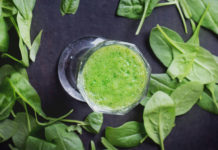It’s that time of year when many of us are gathering for office parties, family gatherings, and large meals. Many of these gatherings involve consuming excessive food and alcohol. Excessive food and alcohol can have negative health effects. While some are temporary, others are may be permanent.
Holiday heart syndrome is a potentially serious medical condition which can occur when large amounts of food, alcohol, caffeine, and salt are consumed. A major symptom of this condition is heart rhythm disturbances, especially atrial fibrillation. A. fib, as it is often referred to, is the most common heart rhythm disorder. In atrial fibrillation, the heart beats rapidly and irregularly. Atrial fibrillation can result in health complications including stroke. Conditions such as cardiomyopathy, congestive heart failure, and heart attack can also be caused by holiday heart syndrome.
How The Holidays Can Affect Your Heart
Binge Drinking
Some research shows that consuming alcohol, particularly red wine in moderation, may be good for your heart. The key word is moderation! The generally recommended guideline is to limit alcohol to one drink a day for women and two drinks a day for men. The higher the alcohol consumption, the greater the chance of holiday heart syndrome.
When consuming alcohol in excess, it can become cardiotoxic. This weakens the heart and cardiovascular system. When heart muscle weakens, heart pressure increases. At this point the atria, also known as the upper chambers of the heart, become stretched and develop atrial fibrillation.
Stress
Holidays can be stressful for many reasons. Stress causes the body’s adrenaline, and other stress hormones, to surge. Alcohol also causes these stress hormones to surge. This sudden surge in stress hormones can cause cardiac arrhythmias and can lead to a heart attack in high-risk individuals.
To reduce stress, get plenty of rest, and keep up with your exercise regimen and meditation during the holidays. Deep breathing exercises, Yoga, and walking are good stress relievers as well. Because this is an especially busy time of year, it is easy to put these on the “back burner.”
Overeating
Eating a large amount of food in one sitting causes the stomach to expand to hold these large meals. This distension of the stomach can result in a stretching reflex that stimulates the nervous system. This can result in atrial fibrillation.
Once again, moderation is important.
Consuming Too Much Salt and Caffeine
We cannot survive without salt. However, when we consume too much our bodies can retain fluid. This causes our blood pressure to rise. In those with a history of high blood pressure, heart valve problems, or heart failure, the higher amount of retained fluid along with an increase in blood pressure can cause atrial fibrillation.
If you are preparing meals you are at an advantage, as you are able to control the amount of added salt. Also, unless you have a medical condition where added salt is needed (fairly unusual), I don’t recommend using the salt shaker at the table at all.
Caffeine acts as a stimulant to the heart, so moderation is once again very important. Caffeine content in coffee and tea varies widely. I generally recommend limiting caffeine consumption to two cups daily.
Although I recommend avoiding soda beverages altogether, if drinking soda it is wise to limit consumption to one or two per week….and be sure to avoid the diet ones!
Also, be sure to stay hydrated. Drink plenty of pure water.
Symptoms Of Holiday Heart
Consider the possibility you may have holiday heart if you have one or more of the following symptoms:
- Rapid Pulse Rate
- Shortness Of Breath
- Chest Pain
- Swelling In The Ankles Or Feet
- Passing Out (Syncope)
Heart attacks are most common during the holidays. The most common day for heart attacks in the U.S. is December 25. The second most common day is January 1.
If you have holiday heart syndrome symptoms at any time of the year, call 911 or go to the emergency room immediately.
Here’s the great news: you can greatly reduce your chance of both holiday heart syndrome and heart attack by following a few key recommendations!









